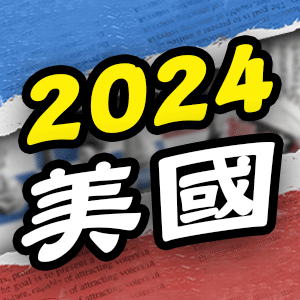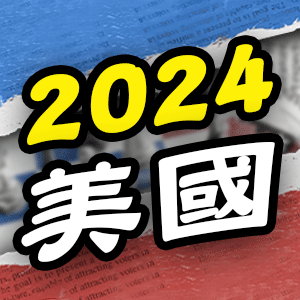TAIPEI (TVBS News) — The semiconductor sector, crucial to Taiwan's economy, remains at the center of geopolitical tensions as U.S. officials emphasize the importance of resilience in the supply chain. Former U.S. President Donald Trump's recent comments have shaken the industry, with Taiwan Semiconductor Manufacturing Company (TSMC) shares dropping 2.4% in July after he accused Taiwan of taking America’s chip business and suggested Taiwan should contribute to the U.S. defense budget.
While this stirred uncertainty, U.S. experts say the semiconductor relationship between the U.S. and Taiwan is secure, regardless of who wins the upcoming presidential election. At a forum hosted by the Brookings Institution in Washington on Wednesday (Oct. 2), General Joseph F. Dunford, the former chairman of the Joint Chiefs of Staff, addressed the concerns over potential risks in the high-end semiconductor supply chain, particularly as the November election draws near.
Single Points of Failure are Unacceptable
Dunford stressed that ensuring resilience in the supply chain is a top priority for both countries. "I don't think anybody's comfortable with single points of failure," Dunford said. "When you identify single points of failure in the business that we're in, you quickly remediate that."
Dunford emphasized that no matter which administration takes office after the election, bolstering the supply chain’s resiliency will remain a priority. "In my view, whichever administration comes in will be supportive of efforts to make our supply chain more resilient," he added.
U.S. Strategy: Countering China's Technological Growth
Valerie Wirtschafter, a fellow at the Brookings Institution and expert on artificial intelligence, echoed Dunford’s assessment. She noted that both the Biden and Trump administrations have focused on countering China's growing dominance in the tech sector, including semiconductors.
"The goal in both a Biden administration, right now, and a Trump administration, in the past and probably moving forward, is to counter China's growth in this space," Wirtschafter explained.
Despite the U.S. having a significant presence in AI development, she noted that it doesn’t control every aspect of the semiconductor supply chain. "There’s the reality of what can be done, where allies play a role, and how allies need to be approached to align with the geopolitical demands the U.S. government seeks to impose," she said.
Wirtschafter's comments highlight the critical role Taiwan plays as an ally in maintaining global technological leadership and securing access to vital components in the semiconductor supply chain.
China's Growing Research and Development Spending
The Biden administration has been closely monitoring China’s technological advancements, which are increasingly seen as a threat to U.S. dominance in areas like artificial intelligence and semiconductors. Arati Prabhakar, director of the White House Office of Science and Technology Policy (OSTP), spoke on this issue, calling attention to China’s rapid rise as a global research powerhouse.
Prabhakar also pointed to China's "boundary-crossing behaviors" under President Xi Jinping, which she described as efforts to exploit American technology for its own gain. "We have to get serious about running faster here and preventing them from taking advantage of our capabilities," she said, emphasizing that partnerships with allies like Taiwan will be crucial in this effort.
To maintain the U.S. technological edge, Prabhakar urged Congress to approve a larger budget for research and development. This push for increased investment aims to secure the U.S.'s competitive advantage in critical sectors like AI and semiconductors, particularly as China continues to close the gap.
While concerns remain about U.S.-Taiwan relations and the stability of the semiconductor supply chain, officials are confident that the partnership will remain strong and resilient, regardless of political changes in Washington.










